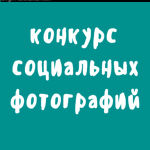Experts recommend. How to increase the rating
Kazakhstan’s results in Global Competitiveness Index we have asked to comment on Dr. Margareta Drzeniek Hanouz, Director of the Global Competitiveness Network.
How would you assess Kazakhstan’s comparative results within the FSU block and group of economies, receiving high oil revenues? The success of the transformations within FSU countries vary considerably, depending upon the specific developments of these countries; however, it is very interesting to know which features you would distinguish as the most influential ones in this regard.
Among the former Soviet Union countries, Kazakhstan is one of the most competitive economies. The smaller ecnonomies of the Baltic states (Estonia leads the group ranking 32nd) and Russia at 51st position are ahead of Kazakhstan within this group. Kazakhstan, at 66th position comes in right ahead of Azerbaijan at 69th and Ukraine at 72nd. The lowest ranking country within this group is the Kyrgyz Republic at 122nd. All rankings are out of 134 covered and we do not cover Turkmenistan, Uzbekistan and Belarus.
Two aspects were the key ones in determining the past performance of the former Soviet Union countries. These aspects are based on institutional framework that was established right after the breakup of the countries – this includes institutions supporting the market economy, but also political institutions and the availability of resources for export. Generally, resource-exporting countries come in significantly higher than the other nations.
Kazakhstan’s performance appears less positive when compared to oil exporting emerging markets. Over the past years, many of these countries, in particular in the Middle East have made great strides in improving their competitiveness and this was reflected in the rankings. For example, Qatar, a small economy, ranks 26th, Saudi Arabia is 27th and Oman 38th. At the same time, some oil exporting countries also are to be found on the bottom of the rankings, for example Venezuela at 105th, Nigeria at 94th and Algeria at 99th.
This year Kazakhstan’s rating decreased again. What is the primary cause of such a continuous slip from your point of view?
Over the past year, Kazakhstan has dropped by five places in the GCR from 61st to 66th position. This drop reflects both external and internal factors. Kazakhstan was touched by the global financial crisis relatively early and the effect of this crisis can be seen in the results. Firstly, the macroeconomic environment has been weakening with a reduction of the budget surplus and a build up of government debt. At the same time inflation soared. Two further areas where Kazakhstan performance has deteriorated in the Global Competitiveness Index are the efficiency of goods markets. Here, the business leaders in Kazakhstan indicated in their responses to our survey, which forms the basis for the Global Competitiveness Index, that the intensity of competition was reduced over the past year. This is related to less effective regulation of competition, but also to higher barriers to entry for new businesses. The number of procedures to start a business increased over the past year. Also, the sophistication of financial markets is assessed as lower than in previous years. In particular, banks are considered less sound, falling from 86th to 124th rank.
Macroeconomic stability was previously considered as the ground base of our economy; hence it is explainable, that the primary concern would be related to the dramatic decrease of this pillar. We would like to know your position regarding the primary reasons of this decline.
Indeed, Kazakhstan’s assessment in macroeconomic stability dropped by 49 positions since the last edition of the report. Two aspects have contributed to the drop in macroeconomic stability in the ranking. Firstly, Kazakhstan’s macroeconomic environment is indeed deteriorating, as mentioned above. However, at the same time, in many countries around the world budget deficits and public debt have been reduced over the past years, in particular in oil exporting economies. So more and more countries overtake Kazakhstan in this ranking. As the index only takes into account macroeconomic indicators until 2007, Kazakhstan’s position is likely to further deteriorate in the future.
Do you think that the new global evolving financial structure- in the light of the current crisis- should correct public financial policy of the transition economies? Could we speak about correction of the so-called “western” model in this regard then?
So far, we do not know what the future global financial structure will look like. However, it is likely that the risk management of banks will be monitored more closely. This is a minor correction and does not put in question the “western” model but aims at filling gaps in regulation that lead to the present financial crisis. Questioning the entire economic model because one element of it does not work would mean throwing out the baby with the bath water. Given the low ranking on the trustworthiness of the banking sector, the priority for the Kazakh government should be in rebuilding trust in the local banks, which is currently a difficult task.
Assuming a priori minor implications of the global threats on national ratings in GCI, and, vice versa, emphasizing an importance of the internal policies then, what are the primary weaknesses in Kazakhstan’s public policy?
Commitment at all levels is necessary to improve the quality of public institutions and government efficiency. Actually, Kazakhstan’s position in terms of Government efficiency is in line with the overall assessment. The prime areas of concern include the protection of property rights and undue influence on the judiciary. In order to improve in these areas, property rights legislation – also related to financial assets – needs to be update to international standards and the judiciary needs to be put in the position to enforce these laws. For this, often training is necessary.
Judicial independence is another area of weakness in Kazakhstan, ranking 102nd out of 134 countries. Business leaders feel that the judiciary is insufficiently insulated from influence by private and public bodies. An independent judiciary is essential for swift and fair resolution of business disputes and trust in the ability to protect property rights.
Among the major positive news is the increase in innovation and sophistication factors (from 125 to 77). Is it possible to consider the growth in innovation as a prerequisite to further sustainable economic long-term growth and eventual transition to a market economy?
Indeed, Kazakhstan improves considerably in this area, in particular in innovation. The country’s innovative capacity as well as the quality of research institutions are considered competitive advantages. For a country at Kazakhstan’s stage of development, however, the more basic factors are of higher importance. So while it is important to prepare for the future and build up the innovative capacity, the more basic current areas are such ones, as public institutions, macroeconomic stability and health.
*We would like to express our deep gratitude to the representatives of the WEF for organization of this interview, and personally Dr. Margareta Drzeniek Hanouz for her answers to the Kazakhstan Magazine.
Table of contents
Competitiveness: Our Place 66 Sergey Gakhov, Elena Zabortseva
Experts recommend. How to increase the rating Margareta Drzeniek Hanouz
Business Forum. In Quest of a Panacea Editorial
Investors and the State: Kazakh Content Editorial
Oil Chronicles: a New Deal Editorial
PetroKazakhstan: Policy of Stability Wang Zhongcai
KIOGE 2008: Autumn Revelations Editorial
Mining in Kazakhstan: Russians Coming Vasily Lukyanchikov










